Open Licensing and Creative Commons
What is Open Licensing?
Open Licensing takes the guesswork out of using copyright protected materials in the classroom. An open license is a document that works within the copyright framework to grant certain permissions to the public that would otherwise be restricted under normal copyright. The more “open” licenses allow users to access, modify and distribute a work with few or no restrictions.
For OER, the most typical type of open license is the Creative Commons license.
Creative Commons
Creative Commons is a nonprofit organization that enables the sharing and use of creativity and knowledge through free legal tools. Their free, easy-to-use copyright licenses provide a simple, standardized way to give the public permission to share and use your creative work — under conditions of your choice. CC licenses let you easily change your copyright terms from the default of “all rights reserved” to “some rights reserved.” (Definition from Creativecommons.org)
Wanna Work Together? by Creative Commons is licensed under a Creative Commons Attribution (CC BY) license
Creative Commons Licenses
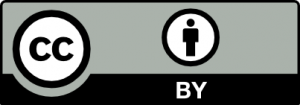
This license lets others distribute, remix, tweak, and build upon your work, even commercially, as long as they credit you for the original creation. This is the most accommodating of licenses offered. Recommended for maximum dissemination and use of licensed materials.
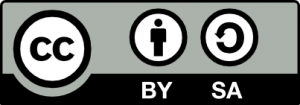
Attribution-ShareAlike (CC BY-SA)
This license lets others remix, tweak, and build upon your work even for commercial purposes, as long as they credit you and license their new creations under the identical terms. This license is often compared to “copyleft” free and open source software licenses. All new works based on yours will carry the same license, so any derivatives will also allow commercial use. This is the license used by Wikipedia, and is recommended for materials that would benefit from incorporating content from Wikipedia and similarly licensed projects.
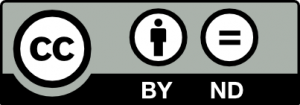
Attribution-NoDerivs (CC BY-ND)
This license allows for redistribution, commercial and non-commercial, as long as it is passed along unchanged and in whole, with credit to you.

Attribution-NonCommercial (CC BY-NC)
This license lets others remix, tweak, and build upon your work non-commercially, and although their new works must also acknowledge you and be non-commercial, they don’t have to license their derivative works on the same terms.
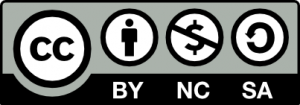
Attribution-NonCommercial-ShareAlike (CC BY-NC-SA)
This license lets others remix, tweak, and build upon your work non-commercially, as long as they credit you and license their new creations under the identical terms.
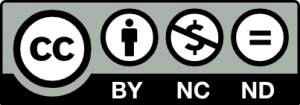
Attribution-NonCommercial-NoDerivs (CC BY-NC-ND)
This license is the most restrictive of our six main licenses, only allowing others to download your works and share them with others as long as they credit you, but they can’t change them in any way or use them commercially.
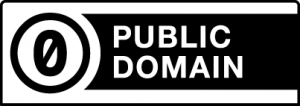
No rights reserved – others are free to remix, redistribute, and commercially use your work, no attribution required.
The above text by Creative Commons is licensed under a Creative Commons Attribution 4.0 License. To learn more about these licenses and the rationale behind them, please read About the Licenses by Creative Commons.
